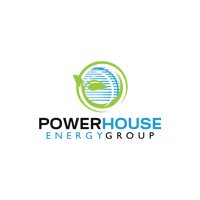Hydrogen is the most abundant element in the universe, but vehicles powered by the clean fuel are somewhat scarce. In the latest sign that that’s changing, DHL is adding hydrogen fuel-cell vans to its fleet to cut carbon emissions with faster refueling time and longer-range than battery-electric vehicles offer.
The delivery giant will initially deploy 100 of the “H2 Panel Vans” in Germany starting in 2020, DHL said in a statement. If they perform as hoped, it may expand the fleet, built by truck maker StreetScooter using fuel-cell systems from Plug Power, to 500 vans. They’re the first 4.25-ton commercial fuel-cell vehicles with a range of up to 500 kilometers (312.5 miles) per tank, DHL said.
PowerHouse Energy (LON:PHE) has developed a proprietary process technology called DMG® which can use waste plastic end-of-life-tyres and other waste streams to convert them into cost efficient energy in the form of electricity and ultra clean hydrogen gas fuel for use in cars and commercial vehicles (FCEV: Fuel Cell Electric Vehicles) and other industrial uses. The PowerHouse technology is the world’s first proven, modular hydrogen from waste (HfW) process.

